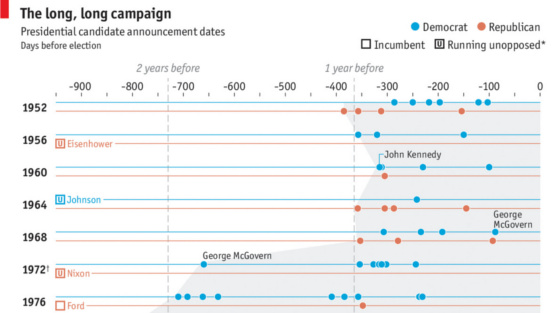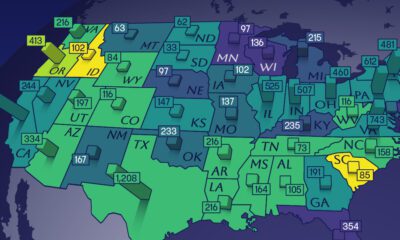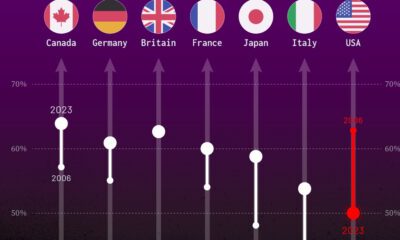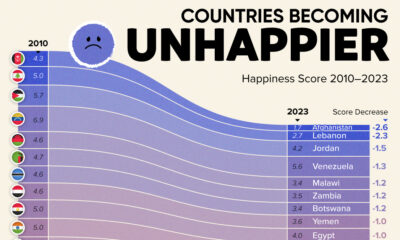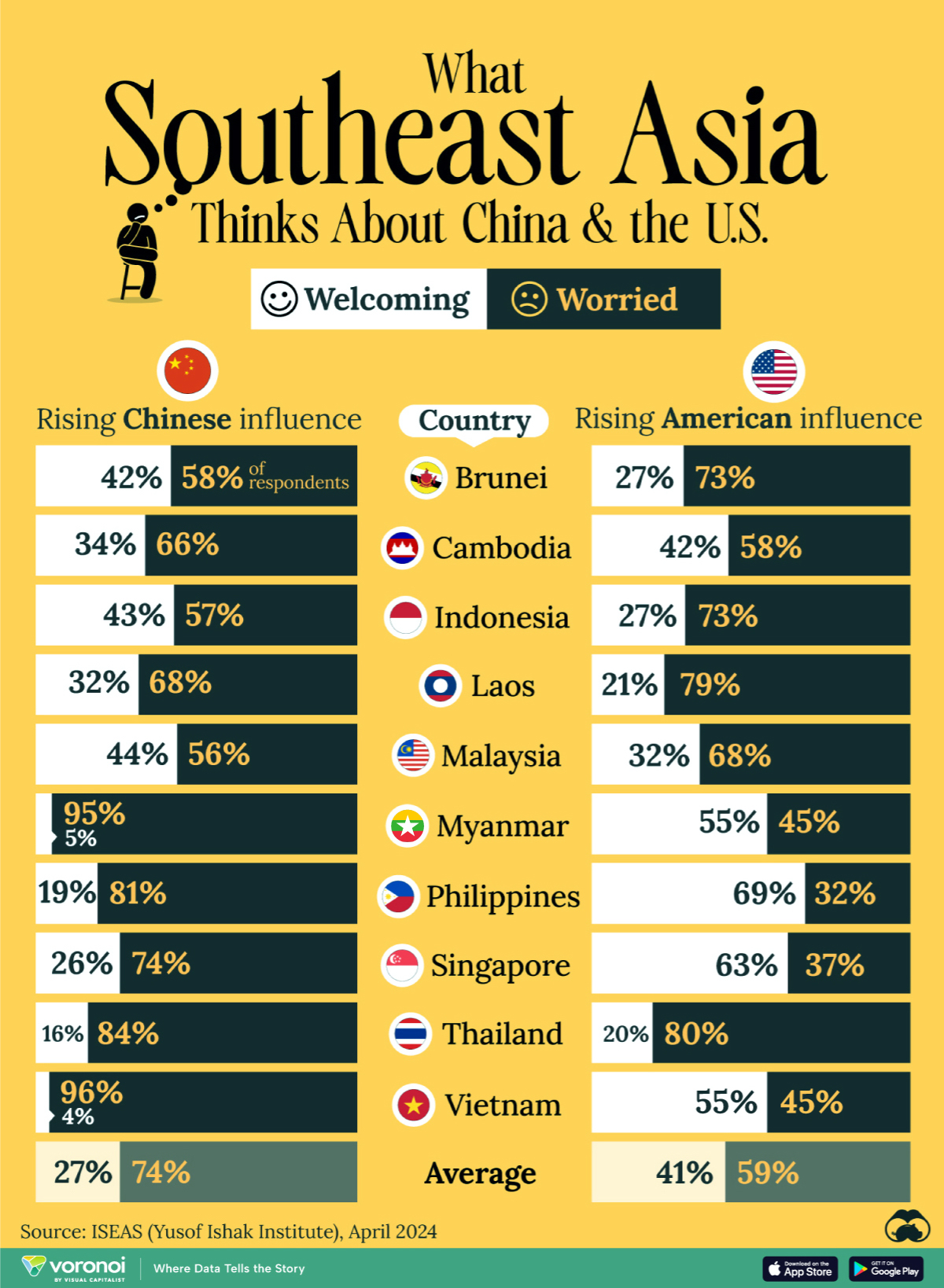Politics
The Long, Long Presidential Campaign
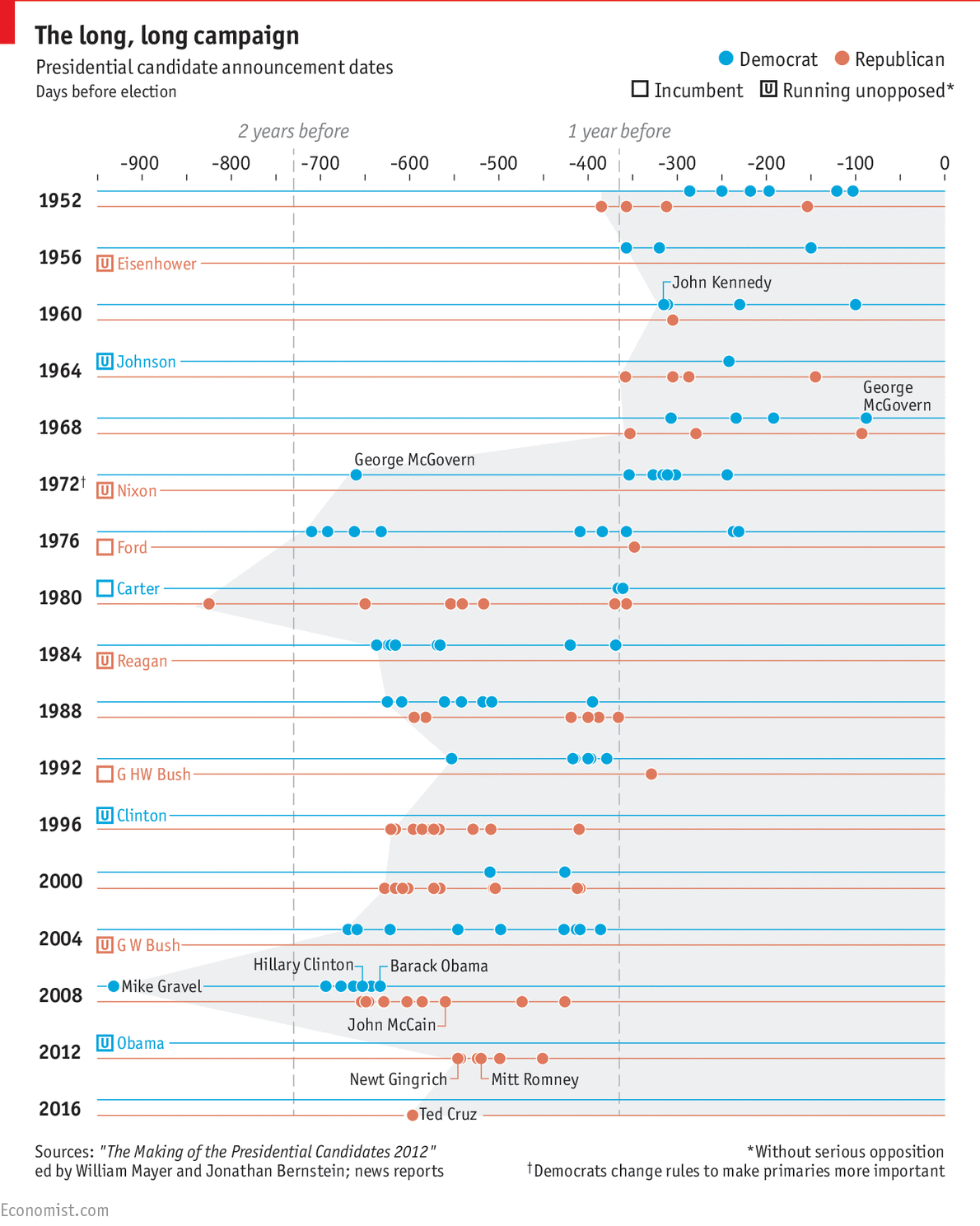
The Long, Long Presidential Campaign
Yesterday, Ted Cruz was the first potential nominee to announce a campaign for the 2016 election. With Cruz’s announcement a long 596 days before the election date, today’s visualization from The Economist looks at how often in history the early bird gets the worm.
For the Republicans, the first to announce has not got the nomination since at least 1952. Last cycle, Newt Gingrich was first to throw his hat in the ring in on May 11, 2011. However, it was just under a year later on May 2, 2012 that he would withdraw and offer his support to the eventual nominee, Mitt Romney.
For the Democrats, Mike Gravel has been the earliest to announce in recent history – that was in 2008. It was far more than two years in advance of the election, and he went on to garner less than 1% in polls. George McGovern, however, did win the nomination in 1972. By the final week of his campaign, he knew he would lose to Richard Nixon and the final tally was 61% to 37% in favour of the Nixon-Agnew ticket.
John F. Kennedy, the first to announce in 1960, did go on to be America’s 35th President. However, that was at a time when the earliest announcements for the bid were less than one year before.
Original graphic from: The Economist
United States
Charted: What Southeast Asia Thinks About China & the U.S.
A significant share of respondents from an ASEAN-focused survey are not happy about rising American and Chinese influence in the region.
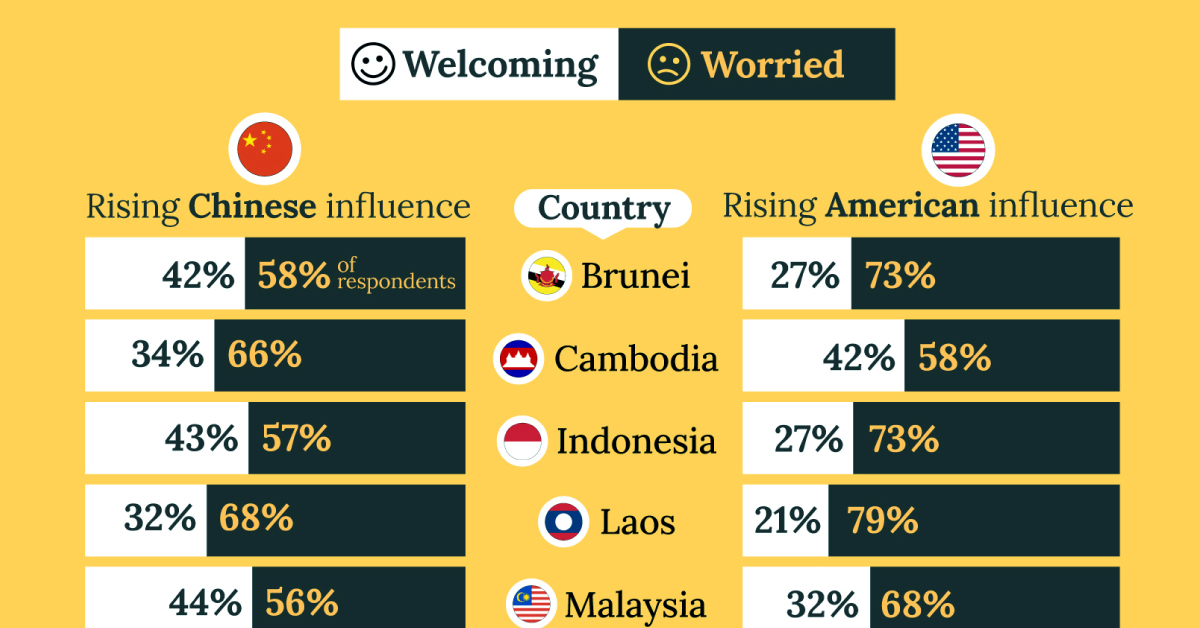
What Southeast Asia Thinks About China & the U.S.
This was originally posted on our Voronoi app. Download the app for free on iOS or Android and discover incredible data-driven charts from a variety of trusted sources.
This chart visualizes the results of a 2024 survey conducted by the ASEAN Studies Centre at the ISEAS-Yusof Ishak Institute. Nearly 2,000 respondents were asked if they were worried or welcoming of rising Chinese and American geopolitical influence in their country.
The countries surveyed all belong to the Association of Southeast Asian Nations (ASEAN), a political and economic union of 10 states in Southeast Asia.
Feelings Towards China
On average, a significant share of respondents from all 10 countries are worried about rising influence from both the U.S. and China.
However, overall skepticism is higher for China, at 74% (versus 59% for U.S.).
| Country | Worried About Growing 🇨🇳 Influence | Welcome Growing 🇨🇳 Influence |
|---|---|---|
| 🇧🇳 Brunei | 58% | 42% |
| 🇰🇭 Cambodia | 66% | 34% |
| 🇮🇩 Indonesia | 57% | 43% |
| 🇱🇦 Laos | 68% | 32% |
| 🇲🇾 Malaysia | 56% | 44% |
| 🇲🇲 Myanmar | 95% | 5% |
| 🇵🇭 Philippines | 81% | 19% |
| 🇸🇬 Singapore | 74% | 26% |
| 🇹🇭 Thailand | 84% | 16% |
| 🇻🇳 Vietnam | 96% | 4% |
| Average | 74% | 27% |
The recently-cooled but still active territorial concerns over the South China Sea may play a significant role in these responses, especially in countries which are also claimants over the sea.
For example, in Vietnam over 95% of respondents said they were worried about China’s growing influence.
Feelings Towards America
Conversely, rising American influence is welcomed in two countries with competing claims in the South China Sea, the Philippines (69%) and Vietnam (55%).
| Country | Worried About Growing 🇺🇸 Influence | Welcome Growing 🇺🇸 Influence |
|---|---|---|
| 🇧🇳 Brunei | 73% | 27% |
| 🇰🇭 Cambodia | 58% | 42% |
| 🇮🇩 Indonesia | 73% | 27% |
| 🇱🇦 Laos | 79% | 21% |
| 🇲🇾 Malaysia | 68% | 32% |
| 🇲🇲 Myanmar | 45% | 55% |
| 🇵🇭 Philippines | 32% | 69% |
| 🇸🇬 Singapore | 37% | 63% |
| 🇹🇭 Thailand | 80% | 20% |
| 🇻🇳 Vietnam | 45% | 55% |
| Average | 59% | 41% |
Despite this, on a regional average, more respondents worry about growing American influence (59%) than they welcome it (41%).
Interestingly, it seems almost every ASEAN nation has a clear preference for one superpower over the other.
The only exception is Thailand, where those surveyed were not a fan of either option, with 84% worried about China, and 80% worried about the U.S.
-
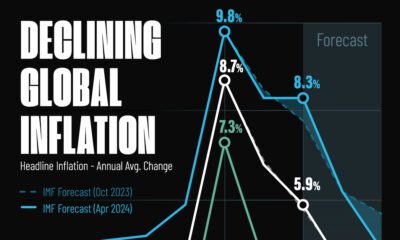
 Markets5 days ago
Markets5 days agoVisualizing Global Inflation Forecasts (2024-2026)
-

 Green2 weeks ago
Green2 weeks agoThe Carbon Footprint of Major Travel Methods
-

 United States2 weeks ago
United States2 weeks agoVisualizing the Most Common Pets in the U.S.
-

 Culture2 weeks ago
Culture2 weeks agoThe World’s Top Media Franchises by All-Time Revenue
-
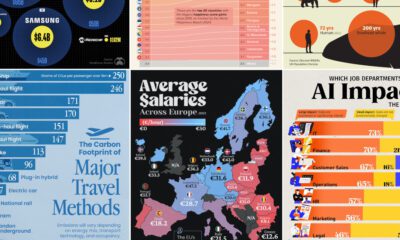
 voronoi1 week ago
voronoi1 week agoBest Visualizations of April on the Voronoi App
-
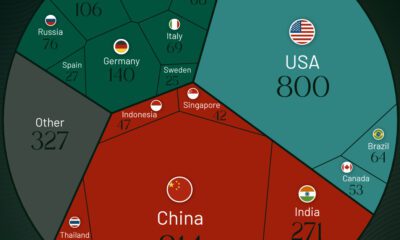
 Wealth1 week ago
Wealth1 week agoCharted: Which Country Has the Most Billionaires in 2024?
-
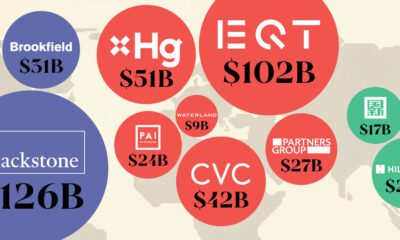
 Business1 week ago
Business1 week agoThe Top Private Equity Firms by Country
-
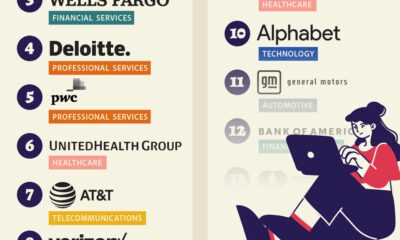
 Jobs1 week ago
Jobs1 week agoThe Best U.S. Companies to Work for According to LinkedIn

